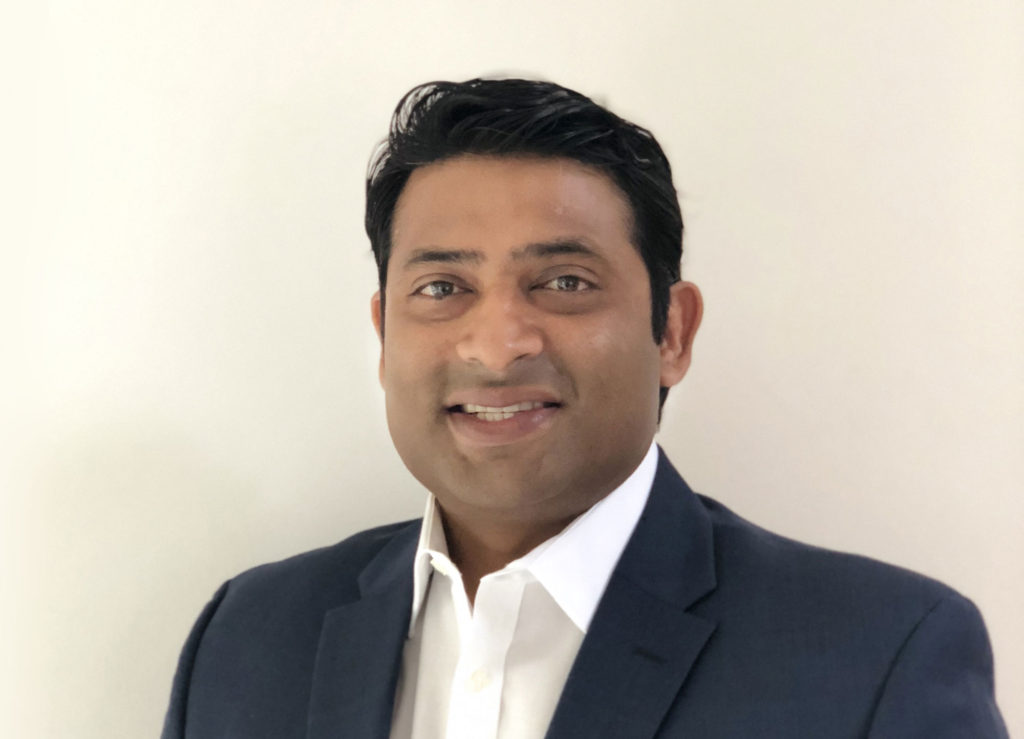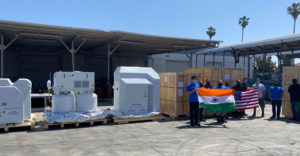Sudhir Ravi – Oxygen for Life

Delivers Life Saving Oxygen Fighting Covid-19 and its Variants Raging Over His Homeland India
By Scott Jonlich
Hinsdale resident Sudhir Ravi is racing against time to deliver life-saving oxygen to pandemic victims on a very large scale to various cities across India, as dangerous Covid-19 and its variants ravage the population. The Major Problems When you contract Covid-19, or variants, your breathing can be seriously affected. Providing oxygen to breathe is critical, or people die. Just now, an aggressive variant strain of Covid-19 is spreading through the population of India very quickly. Hospitals and India’s public health infrastructure is overwhelmed, not to mention the general infrastructure for much of India itself. Deaths are climbing dramatically. People are lined up to get personal oxygen cylinders that they can use at home, but the demand is outstripping the supply. Compounding the problem is a black fungus mold that people are contracting. For perspective, while 40%+ of the US population has been vaccinated, only 3% have been vaccinated in India. Fortunately, the US just announced it is committing vaccines on a large scale. India is clearly in a major crisis. Indian executives and business people all over the world have joined forces to do whatever they can, as fast as they can, to provide funding, equipment, and knowledge to help the millions in India as they try to cope. One Major Solution: Large, Self-Generating Oxygen Machines Little did Sudhir Ravi realize he would be embarking on a humanitarian mission when private equity firm TJM Capital Partners, where he is an operating partner, purchased a company just this April that makes the very machines hospitals desperately need: large capacity, self-generating oxygen machines.
“From the dedication of the employees in Riverside, California, who worked around the clock to make the oxygen machines for folks they will never meet, to the folks who financially sponsored the initiative, I will always cherish the uniqueness of fellow Americans as the most generous and charitable society on the planet.”
These units are large enough to provide about 6 tons of life-saving oxygen per day and can serve 25,000-50,000 patients over a 6-month period. Immediately after hearing of the situation, Sudhir with the support of TJM’s General Partner located 11 such industrial strength machines in his company’s US and Germany locations, which were quickly dispatched with the help of FedEx and their efficient end-to-end delivery system. Within 22 days of learning of the crisis, these machines were installed and are generating oxygen right now at each hospital location. The hospitals were sourced through word-of-mouth and social media by Sudhir and his LinkedIn network. The hospitals are in New Delhi, Mumbai, Chennai, Vijaywada, Tirupathi, and Bangalore. All costs were sponsored by a consortium of Indian philanthropists, again sourced through social media and were provided free to the hospitals. Given the insatiable demand for these units, Sudhir is shipping the machines to India from the US as fast as they can be made, which can take as long as 30 days per unit.

Several docs 500’s being shipped from Riverside, California to Bangalore, India
All of this extraordinary effort is not surprising. When Sudhir was growing up in India, his father, a farmer by profession, taught him the value of hard work, community, and family values through example. A quote that Ravi says inspires him even today from his father, is one about persistence and commitment: “Crops don’t care if you are having a bad day, you have to show up and water them or they die. Feed them daily and the whole family and community eat.” When asked about what lessons he learned from this humanitarian effort, he acknowledges the generosity of the people of his adopted homeland, USA: “From the dedication of the employees in Riverside, California, who worked around the clock to make the oxygen machines for folks they will never meet, to the folks who financially sponsored the initiative, I will always cherish the uniqueness of fellow Americans as the most generous and charitable society on the planet.”
